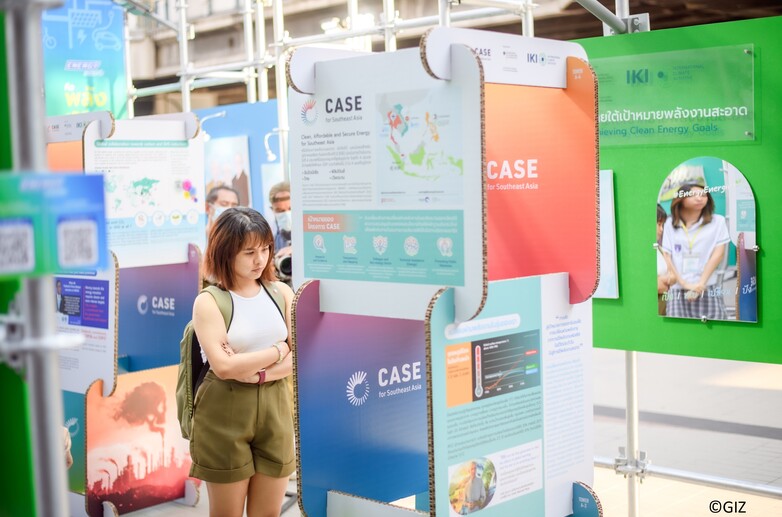Promoting expertise and dialogue for an energy transition in Southeast Asia
Clean, Affordable and Secure Energy for Southeast Asia – CASE
-
Commissioning Party
German Federal Ministry for Economic Affairs and Climate Action (BMWK)
-
Country
Southeast Asia (Indonesia, Philippines, Thailand, Viet Nam)
-
Lead executing agency
More
-
Overall term
2020 to 2027
-
Other Stakeholders
Agora Energiewende, New Climate Institute, Thailand Development Research Institute, Institute for Essential Services Reform Indonesia, Institute for Climate and Sustainable Cities Philippines
-
Products and expertise
Sustainable infrastructure: energy, water, transport
Context
Energy demand in Southeast Asia is forecasted to increase by 70 per cent by 2040. Indonesia, the Philippines, Thailand and Viet Nam are currently responsible for 80 per cent of total energy consumption in Southeast Asia. How the energy sector develops in these countries will therefore have a significant impact on whether the region can achieve its development goals and guarantee clean, secure and affordable electricity.
The share of wind and solar energy in the four countries is far from its full and relevant potential. The main obstacles include: inconsistent energy planning, significantly overlooked potential of renewable energies and energy efficiency, questionable grid capacities and stability, above-average investment costs, lack of political will and deadlocked processes.
Objective
Evidence-based knowledge on a clean, affordable and secure energy transition in line with the Paris Climate Agreement.

Approach
The project aims to accelerateclimate targets in the energy sector in Southeast Asia. It cooperates with international and local think-thanks working on climate science. The project proposes evidence-based solutions so that decision-makers can shape the energy transition and build publicsupport for it.
To do so, it implements measures including the following:
- Together with the partner organisations, the project collects data and prepares it in a way that is appropriate for the target group and purpose so that it can be fed into policy dialogues. The aim is that this will contribute to a consensus in support of the energy transition.
- It developed the ‘SEA Information Platform for the Energy Transition, SIPET’ and thus the knowledge portal for the energy sector in Southeast Asia. It also promotes exchange among decision-makers.
- It gets stakeholders involved in dialogue on the energy transition who do not formally have a say in relevant decisions but are affected by them.
Last update: October 2023






